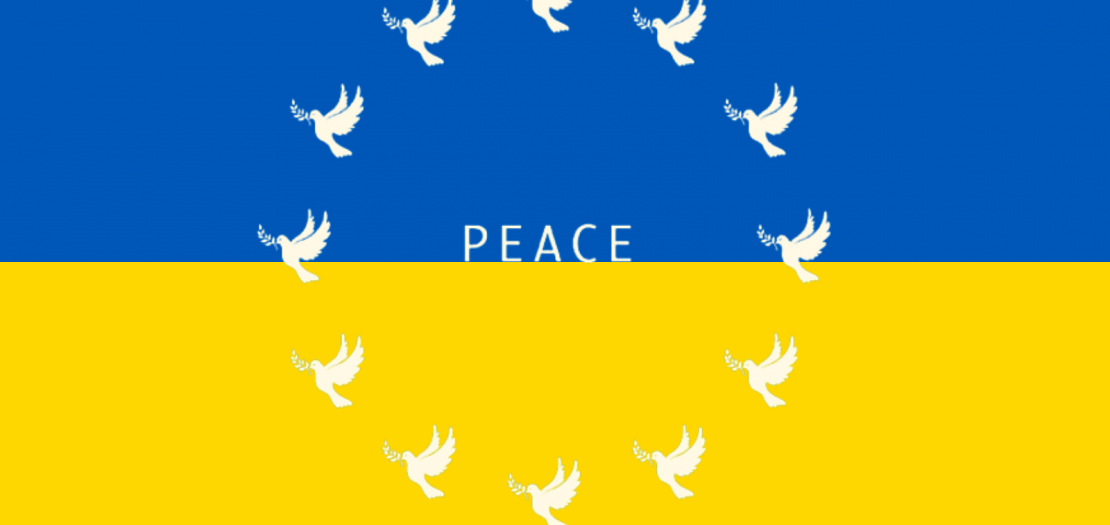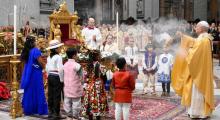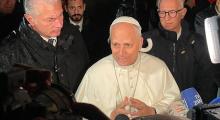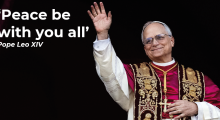Issued by the Catholic Center for Studies and Media - Jordan. Editor-in-chief Fr. Rif'at Bader - موقع أبونا abouna.org

"An eloquent and evocative sign emerges from the march for peace held in Lviv: first of all, it was proposed by Catholic and lay associations that, although coming from different paths, have come together; this is already a first important result that has shown that in the face of people who suffer and die, words or speeches are not enough, but concrete gestures are needed.
The flesh of those who suffer is touched and this concrete gesture is followed with great attention by those who show that they are tired of war". This is what Monsignor Giuseppe Satriano, Archbishop of Bari, who was present at the "Stop The War" peace march, promoted by the Pope John XXIII Association but was joined by more than 150 Italian civil society organizations, both Catholic and lay, told Agenzia Fides.
The caravan of more than 60 vehicles, with more than 220 people, arrived in the center of Lviv, 80 kilometers from the Polish border, on Saturday, April 2, to deliver several quintals of medicine and food. From there the minibuses, once the gifts were delivered, made available all their seats for people who have decided to leave the country at war and seek asylum in Europe. Archbishop Satriano decided to participate in the peace initiative, sharing the fatigue but also the pleasure of making a trip together with others to bear witness to the desire to build peace. "Beyond the criticism, often clouded by ideological speculation, it is important to point out that - in the face of a policy that has shown itself to be small and short-sighted when not subjected to commercial interests - the gesture of these people raises a cry: namely, that through this kaleidoscope of diversity and beauty, it is possible to weave fraternity".
"Fraternity - continues the Archbishop of Bari - can be the future of the history we are living. It is a theme, that of fraternity, which makes it possible to bring together people with different histories and sensitivities, also because Pope Francis, with 'Fratelli tutti', has distanced this term from a purely cultural and elitist interest, as well as of a purely religious interpretation. The Pontiff therefore emphasized a very simple and strong concept, namely that we are all brothers and, therefore, we are all interconnected. The word fraternity has always been part of the world of the Church, just as it is part of the heritage of the French Revolution, but now I see that this varied people of peace have gathered around this word to act, to give back dignity to others. To really build peace - concludes Msgr. Satriano - and not just to talk about it".






